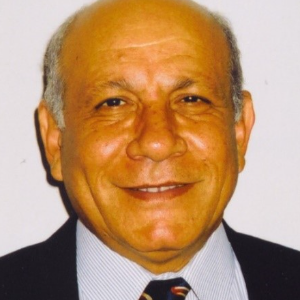Petroleum hydrodynamics involves the study of fluid behavior within the intricate network of oil and gas reservoirs, wells, and production facilities. This multidisciplinary field combines principles from fluid dynamics, thermodynamics, and reservoir engineering to analyze the movement and interaction of hydrocarbons and associated fluids underground. Key factors such as reservoir pressure, temperature, fluid properties, and rock permeability significantly influence petroleum hydrodynamics. Reservoir simulation models are employed to predict fluid flow, pressure changes, and temperature variations over time, aiding in the optimization of production strategies. The understanding of multiphase flow phenomena, including the coexistence of oil, water, and gas, is crucial for efficient reservoir management. Hydrodynamic principles are applied to artificial lift systems, such as pumps and gas lift, to enhance the recovery of hydrocarbons from wells. Wellbore hydraulics is a subset of petroleum hydrodynamics that focuses on the fluid behavior within the wellbore during drilling, completion, and production operations. Pressure transient analysis is used to interpret well responses and assess reservoir connectivity. Waterflooding and enhanced oil recovery methods leverage hydrodynamic principles to improve reservoir sweep and increase hydrocarbon recovery rates. Petroleum hydrodynamics plays a central role in ensuring the sustainable and optimal extraction of hydrocarbons, guiding decision-making processes for reservoir development, well management, and overall production efficiency. As the industry evolves, advancements in technology and modeling techniques continue to refine our understanding of petroleum hydrodynamics, contributing to more effective and sustainable oil and gas operations.

Anthony J Sadar
Environmental Science Communication, LLC, United States
Selim Sanad Shaker
Geopressure Analysis Services, United States
Sharma Dronamraju
AKD Professional Solutions Inc., United States
Ross Cygan Taylor
North Sea Transition Authority, United Kingdom
Saleh Alqahtani
Saudi Aramco, Saudi Arabia
Abdulrahman Bahashwan
Saudi Aramco, Saudi Arabia



Title : The Vacuum Insulated Heatable Curtain (vihc): From conceptual invention to market deployment as a cost-effective dual solution for window heat loss reduction and localised radiant comfort
Saim Memon, Sanyou London Pvt Ltd, United Kingdom
Title : Transforming waste plastic into hydrogen: Progress, challenges, and future directions in pyrolysis-based integrated pathways
Nur Hassan, Central Queensland University, Australia
Title : Unlocking UKCS potential through collaborative well interventions
Ross Cygan Taylor, North Sea Transition Authority, United Kingdom
Title : Driving excellence in marginal field development and operations through an integrated smart strategy to unlock challenging sour oil
Sharina Al Muhairi, ADNOC Onshore, United Arab Emirates
Title : Innovative solutions for accurate and efficient gas monitoring
Raysa Bani Ibrahim, Abu Dhabi National Oil Company, United Arab Emirates
Title : Innovative solutions for accurate and efficient gas monitoring
Mariam Alzaabi, Abu Dhabi National Oil Company, United Arab Emirates